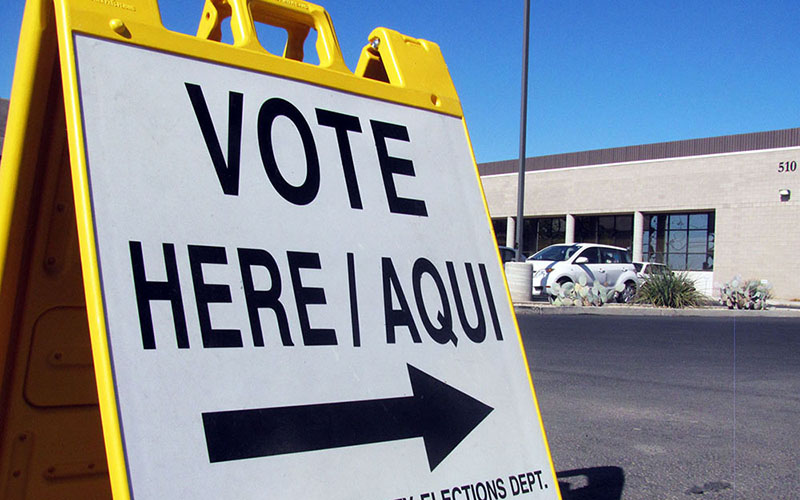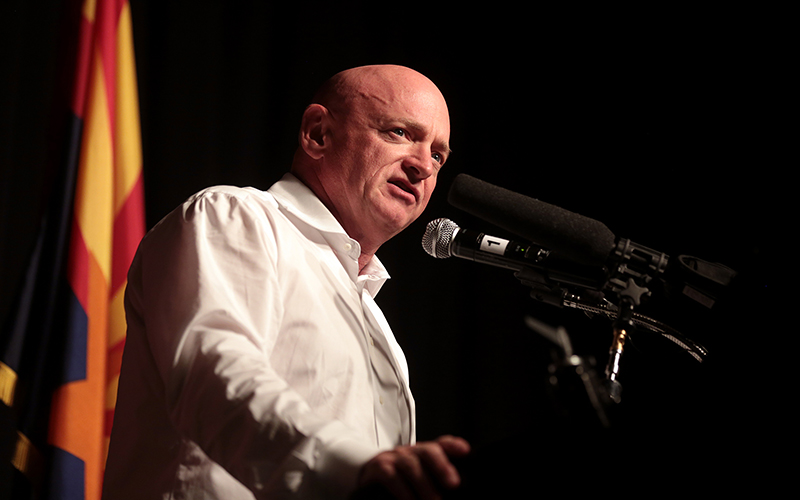WASHINGTON – Arizona’s congressional incumbents have the advantage of name recognition and massive fundraising leads – but analysts say they might need both as congressional redistricting has “put us all in a state of limbo” for the 2022 House races.
There are other variables for next year as well, including an open seat in District 2 where Rep. Ann Kirkpatrick, D-Tucson, is not seeking re-election. But for now, fundraising “is something members of Congress can control” and they have, with the latest campaign finance reports showing incumbents had raised $3 million and had $4.7 million in the bank as of June 30.
“Showing the ability to raise money is important early on to show you have a viable race and that you’re a viable candidate,” said Paul Bentz, senior vice president of research and strategy at HighGround Inc.
Arizona’s House races are sure to be overshadowed by the race for the Senate seat held by freshman Sen. Mark Kelly, D-Ariz. His election gave the state two Democratic senators for the first time in a half-century and helped Democrats gain the slimmest majority in the Senate.
With control of the Senate at stake, both parties are expected to funnel money to the race, where Kelly has already raised $10 million and three of his Republican challengers have raised more than $3 million combined.
But House hopefuls have been raising money at a good clip, too, starting with Rep. Tom O’Halleran, D-Sedona, who reported raising $745,004 so far this year and having $616,995 in the bank, according to his June 30 filing with the Federal Election Commission.
Jason Rose, a Republican political consultant, said O’Halleran’s is the “most intriguing congressional race.” Rose said O’Halleran did not win his 2020 re-election by the margins many expected, garnering just over 51% of the vote, and he faces a credible challenger in state Rep. Walter Blackman, R-Snowflake, who had raised $137,727 as of June 30.
Miles Coleman, associate editor of Sabato’s Crystal Ball at the University of Virginia’s Center for Politics, said that O’Halleran’s district currently leans Democratic, with 36.2% of voters registered as Democrats to 32.4% registered Republicans. But he said “if Yavapai County gets put back in, O’Halleran could have a much more red district” in District 1, which covers most of northern and eastern Arizona.
The heaviest fundraising has been in District 2, the Tucson-area seat that comes open with Kirkpatrick’s retirement. Four Democratic hopefuls had raised a combined $1.2 million for that race, led by Randall Friese, a state representative and surgeon who had raised $566,363 by June 30 and had $425,392 cash on hand.
Other Democrats running include state Sen. Kirsten Engel, who reported raising $335,019 and state Rep. Daniel Hernandez, who raised $268,340.
“District 2 will be the odd one out because there’s no incumbent,” said Bentz, adding that it is the district with the most flexibility when it comes to redistricting and is “likely to see some significant change.” Democrats in the district had a voter registration edge of 36.5% to 32% for Republicans, according to the latest data from the Arizona Secretary of State’s office.
Incumbents are currently running for re-election in all the other districts in the state, and they have substantial fundraising leads over their challengers, with most raising 80 to 90% of the total for the district.
Chad Campbell, senior vice president of Strategies 360 in Arizona, said that “being an incumbent gives you an inherent advantage,” as far as higher name recognition and fundraising capacity.
The analysts agreed it is hard to take out an incumbent, even for challengers who can compete in fundraising. They point to District 4 Rep. Paul Gosar, R-Prescott, who reported raising $185,744 to the combined $132,499 raised by two Democratic challengers in his district.
But that district, they note, is 48.5% Republican to 18.9% Democratic. Just under one-third of voters in the western Arizona district are independents.
“That’s why he (Gosar) can act the way he does” and still be re-elected, Bentz said.
District 6 is another example where registration can offset a challenger’s fundraising. Despite being heavily outspent last year, and coming off a House ethics probe for handling of his office and campaign funds, Rep. David Schweikert, R-Fountain Hills, was able to win election to a sixth term from the district where GOP voters have a 38% to 27% advantage over Democrats.
“He got outspent last cycle, it was not a wonderful year for Republicans and had vulnerabilities,” Rose said of Schweikert. “And it’s a district that has flipped in the past… despite all of that they were still unable to unseat him.”
But all that could change in redistricting, which is why analysts say challengers and incumbents have to raise funds heavily now.
“Raising money… is something members of Congress can control,” Coleman said. “It’s important in the off years for them to have as strong of a starting quarter as they can.”



